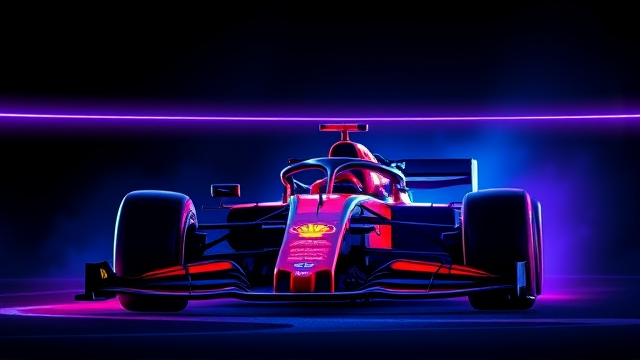Jenson Button: Ferrari Fears Failure, Needs Stability with Vasseur.
The specter of failure, that chilling whisper which has haunted the corridors of Maranello for far too long, is precisely what 2009 Formula 1 World Champion Jenson Button has identified as the Scuderia’s most formidable opponent—not Red Bull, not McLaren, but an internal culture of fear. In a candid assessment that cuts to the very heart of Ferrari’s modern struggles, Button articulated a truth many have long suspected: the team is paralyzed by the dread of underperformance, a sentiment that permeates from the garage to the Gestione Sportiva, leaving every individual feeling perpetually on the precipice of dismissal.This isn't the environment that forged the legendary dynasties of Michael Schumacher and Jean Todt; this is a reactive panic, a far cry from the methodical, unflappable dominance that once defined the prancing horse. Button’s core argument, delivered with the sharp insight of a man who has both won a championship and battled through the midfield grind, is that stability under Team Principal Frédéric Vasseur is not merely a preference but an absolute necessity, even if the 2025 season begins with a stutter rather than a victory roar.The upcoming regulatory overhaul presents not just a technical challenge but a profound test of institutional nerve; changing leadership at the first sign of trouble would be like a football club sacking its manager after the first match of a new tactical system—it’s a short-sighted gambit that guarantees long-term mediocrity. Consider the stark contrast with the relentless continuity at Red Bull, where Adrian Newey’s visionary genius has been nurtured for nearly two decades, or the steady, long-term project Toto Wolff has overseen at Mercedes.Ferrari’s recent history, however, reads like a revolving door of leadership: from Stefano Domenicali to Marco Mattiacci, from Maurizio Arrivabene to Mattia Binotto, each departure another reset, another lost philosophy, another two years of development down the drain. Vasseur, a shrewd operator with a proven track record of building competitive outfits from Sauber to Renault, deserves the one commodity Ferrari has been so reluctant to grant: time.His appointment was a clear signal of a new direction, one focused on structural cohesion and a long-term vision, and to pull the plug prematurely would be to admit that the very concept of a plan is alien to the Scuderia’s DNA. Button’s poignant observation—that the team needs stability to instill confidence in everyone, especially its drivers—is a masterclass in sporting psychology.Charles Leclerc and Carlos Sainz, arguably the most potent and closely-matched driver pairing on the grid, are operating at a razor’s edge; they need to know that the architecture supporting them is solid, that a single DNF or a strategic misstep won’t trigger a seismic organizational quake that jeopardizes their careers. This isn’t just about car development; it’s about creating a sanctuary for excellence, a place where calculated risks can be taken without the sword of Damocles hanging overhead.The 2026 power unit regulations loom large, a horizon that Ferrari must march towards with a unified command. Vasseur’s challenge is Herculean: he must simultaneously manage the volatile political landscape within Ferrari, integrate the massive internal restructuring he has initiated, navigate the complexities of the current cost cap era, and foster a culture where innovation is celebrated rather than feared.The road back to the summit of Formula 1 is a marathon, not a sprint, and it requires a leader who is given the full race distance to see it through. As Button so astutely concluded, with a driver lineup this formidable and a leadership he believes is capable, the ingredients for success are there. The question is whether Ferrari’s famously impatient hierarchy can finally learn the lesson every great sports dynasty understands: true victory is built not on reactionary chaos, but on the unshakeable foundation of trust and time.
Latest News
In a stunning twist of fate that will be debated in Russian hockey circles for years, SKA Saint Petersburg snapped Avtomobilist Yekaterinburg's formidable
4 minutes ago0 comments
In a dramatic Monday night showdown that will be debated in KHL taverns for years, SKA St.
9 minutes ago0 comments
In a move that feels less like a routine practice squad addition and more like a calculated chess play, the New York Giants are strategically reuniting rookie
14 minutes ago0 comments
The full-time whistle at Windsor Park provoked a complex symphony of emotions that perfectly encapsulated Northern Ireland's heartbreaking yet heroic 1-0
29 minutes ago0 comments
The Tennessee Titans' decision to fire head coach Brian Callahan on Monday, with the team mired at 1-5, was not a sudden shockwave but the inevitable
39 minutes ago1 comments
The beautiful game, so often a theater of dreams, once again finds itself an unwilling stage for the world’s most intractable conflicts as the Italian national
59 minutes ago0 comments
The ice was absolutely electric last night, folks, as the NHL’s regular season continued to deliver the kind of drama we live for.
1 hour ago0 comments
In the charged atmosphere of a rivalry that divides a state and captiVates a nation, Utah head coach Kyle Whittingham executed a strategic sidestep that spoke
1 hour ago1 comments
It’s quiet here...Start the conversation by leaving the first comment.
